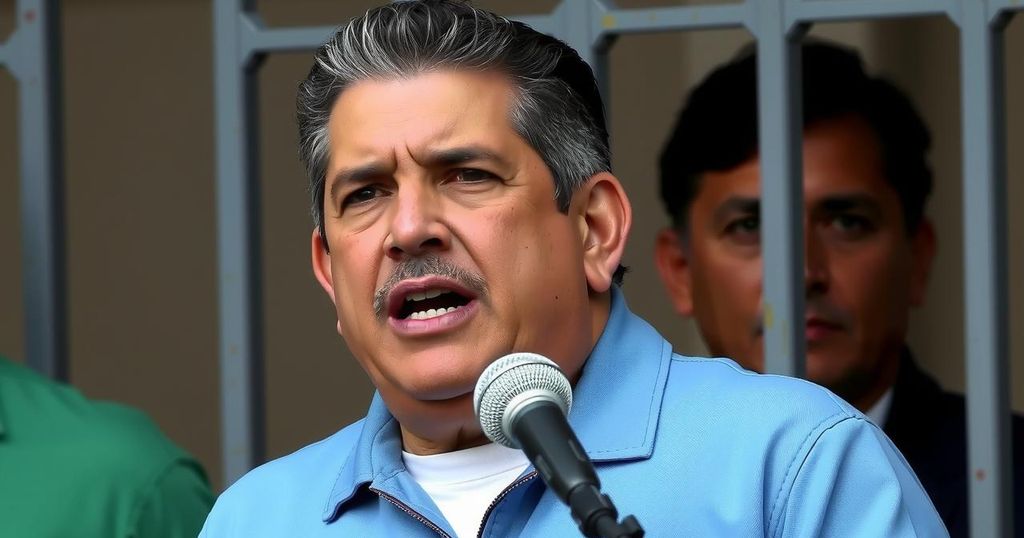Nicolás Maduro’s Third Term: The Tightening of Autocracy in Venezuela

Nicolás Maduro is set to take office for a third term amidst severe humanitarian and political crises in Venezuela. His regime has intensified crackdowns on dissent, with many opposition leaders either in exile or hiding. Protests are emerging, but the constant threat of government repression complicates resistance efforts.
On Friday, Nicolás Maduro, the Venezuelan president widely denounced for electoral fraud, is poised to take the oath of office for a third presidential term. This comes during a period marked by severe socio-economic turmoil in Venezuela, characterized by rampant inflation, power outages, widespread hunger, and extensive migration. Despite strong public opposition to his regime, Maduro has intensified his authoritarian grip, deploying police and military forces throughout Caracas, arresting journalists, activists, and community leaders, and expanding his surveillance network.
Amidst this repression, many prominent opposition figures remain either in exile or have gone into hiding. Edmundo González, who was reportedly favored as the rightful winner of the election, has fled to Spain to escape potential imprisonment. Meanwhile, María Corina Machado, a significant voice of dissent, recently emerged from hiding to lead protests demanding freedom, where supporters rallied courageously in defiance of possible repercussions. Despite her temporary detainment by undisclosed assailants, her efforts symbolize the ongoing resistance against Maduro’s regime. Yet, the constant threat of security crackdowns poses challenges for organizing further protests.
The current political climate in Venezuela is heavily influenced by Nicolás Maduro’s controversial leadership, which has been marked by severe economic decline and a systematic dismantling of democratic processes. Since taking power, Maduro has faced widespread accusations of corruption, human rights violations, and electoral misconduct. His governance has led to an unprecedented humanitarian crisis, prompting millions to flee the country. The opposition, although fragmented and facing repression, represents a significant faction that seeks to restore democracy and accountability within Venezuela. While protests have emerged in response to the ongoing crisis, the risk of state violence inhibits sustained activism.
The swearing-in ceremony of Nicolás Maduro for a third term is emblematic of an ongoing struggle for power amid a dire humanitarian crisis in Venezuela. His administration reflects a concerning consolidation of authoritarian rule, with substantial crackdowns on dissent, severe restrictions on political opposition, and the manipulation of electoral processes. As some opposition leaders continue to mobilize public sentiment against the regime, the challenges they face underscore the perilous nature of activism in an environment rife with state-sponsored repression and surveillance.
Original Source: www.nytimes.com







